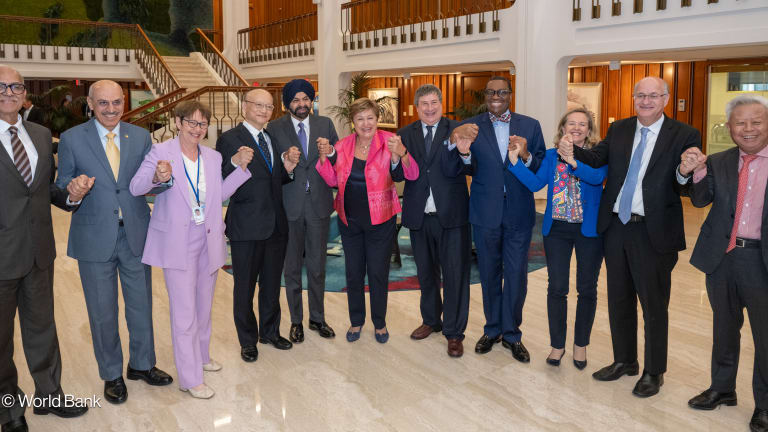In the midst of the discussions about the substantial gaps in finance for development and climate investments, there is a crucial missing piece that hampers our ability to achieve success: integrated strategies for low-carbon, climate-resilient development paths owned by the countries themselves.
It may come as a surprise that such comprehensive strategies do not currently exist, despite the urgent and growing challenges we face in both climate and development. Instead, the relevant components are scattered across different initiatives.
We have country strategies established separately with individual multilateral development banks, nationally determined contributions, or NDCs, for reducing emissions under the Paris Agreement, country-led Just Energy Transition Partnerships that primarily focus on the energy sector but can struggle to secure adequate funding, and the Country Climate and Development Reports, or CCDRs, produced by the World Bank to integrate climate and development analysis which are not strategies and do not establish targets or commitments.








